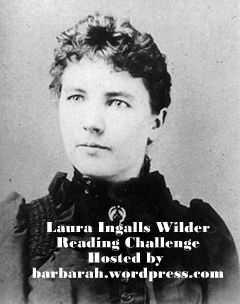I found myself nodding and mm-hmming all the way through Frank Furedi’s Paranoid Parenting but was curiously unable to summarize Furedi’s arguments to my husband after I was done. That’s always a bit of a frightening prospect, because it suggests that I was reading to confirm my own biases rather than reading with a critical eye. As a result, I’ve chosen to reread the book, summarizing the author’s arguments in each chapter in order to give me opportunity to critically evaluate them. And, since blogging gives me a platform to share my thoughts, you get to peek at my notes (or skip them, if you prefer.)
Introduction
In the introduction, the author sets up the problem: In today’s world, everything is seen as threat to children and experts proclaim that there is one right way to parent properly (except that the experts disagree with one another as to what this one right way is) and that everyone who doesn’t do it their way is not only neglectful but potentially abusive – with the result that parents no longer trust their own judgment and hyper-parent lest they somehow allow their child to do or be exposed to something dangerous.
Chapter 1: Making Sense of Parental Paranoia
According to Furedi, parental paranoia is the result of three factors: an obsession with safety, a view that parental supervision is always positive, and a breakdown of adult solidarity. The first two are pretty self-explanatory, and I’m sure we can identify plenty of examples from our own experience. The third is a little different. Furedi posits that in the past, other adults were considered to be potential allies in child-rearing. Now, other adults are seen as potential threats to children, such that parents no longer trust other adults to supervise their children and other adults are fearful to interact with children lest they set off “stranger danger” alerts. The result is that parents are isolated – and children over-supervised.
The “breakdown of adult solidarity” is a new concept for me – and one that I struggle with (in a largely emotion-driven way). I am exposed to a lot of parents in my work with WIC. Most of these parents are pretty normal and, while I disagree with them on several parenting points (I am pretty opinionated when it comes to childrearing – and pretty much anything, really), I acknowledge that they are not people to be feared. I also see what is likely a disproportionate amount of truly bad parents – parents who scream at their children, who abuse their children physically, who expose their unborn babies to methamphetamine. I see the little ones who have been removed from their parents’ homes, who have marks from where their parents hit them or restrained them. I see the little ones who overeat once they get into foster care because for the first time in their life they have ready access to real food (as opposed to chips scrounged from the floor where they fell.) I would never put a child in these bad parents’ care – but I’m not worried that they’ll cause damage to a child not in their care. I don’t fear that these adults would rage at someone else’s child in a public park.
The parents I fear are… upper middle class mommies. I fear the people who jumped on Lenore Skenazy (of Free Range Kids) for letting her 9 year old ride the subway. I fear that over-protective mothers might prevent my children from experiencing a childhood. So I experience the breakdown of adult solidarity – but in the opposite direction of what the author describes. (That said, at least at present, I live in a nice lower class neighborhood where other parents are unlikely to judge me for letting my kids play in the street. It’s definitely a plus of NOT living in the suburbs! :-P)


